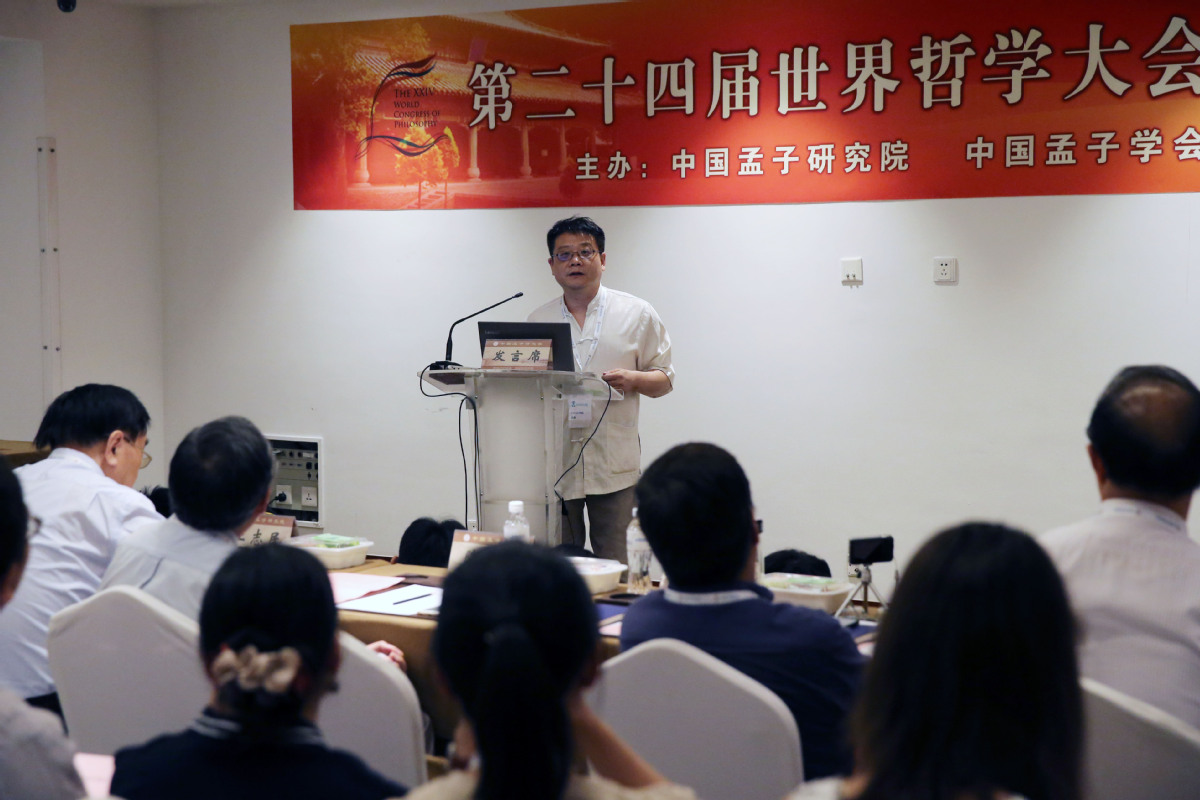Nation gives some deep thinking to philosophy
By Li Yang | China Daily | Updated: 2018-08-20 08:55

Zhang Shiying, a 97-year-old philosophy professor at Peking University, told the media the congress marked a significant and progressive step in world philosophy's integration of and exchanges between Chinese and Western philosophies.
Themed "Learn to be human", the Beijing gathering is the largest in the event's history.
The federation's president, Dermot Moran, said in his speech at the opening ceremony on Aug 13, "The Congress is of groundbreaking and monumental significance for the future expansion and development of philosophy in its global context."
Lin Jianhua, president of Peking University, said in his opening speech, "The theme shows the close connections between contemporary philosophical reflection and common concerns of human beings, as well as philosophy's fundamental value in shaping human beings' spiritual life and public discourse."
Li Xiaolong, a retiree in his 80s from Jinan, Shandong province, who is interested in studies of the ancient Chinese philosophers Confucius and Lao Tzu, has been closely following the Beijing gathering.
That about 60 percent - or 5,000 - of the participants are from China, and many of them are interested in philosophy and are not professional researchers, shows not only the success of the meeting, but more important, Chinese people's new recognition of the importance of philosophy and knowledge, Li said.
China has transformed its growth pattern from quantitative to qualitative, and paid more attention to addressing profound societal, cultural and ecological issues. "It means a paradigm shift to sustainability, fairness and justice, which entails the rise of new thinking and more inclusive philosophical environments," Li said.
Although some participants' ideas and papers appear "ridiculous" to a general audience, they are admitted by the Congress, and they are entitled to air their views.
Li added: "That's exactly the spirit of philosophy and shows how it has progressed. Thinking and debating should always be encouraged to help people approach the truth."
The Congress is generally considered a platform for the exchange of ideas among philosophers, particularly those from Asia, Africa and Latin America who have long been represented - if not sometimes ignored - by their Western counterparts.
Moran said: "This congress will also, hopefully, have an enduring impact on international cultural relations, promoting mutual understanding, respect for traditions and trust around the world. New intercultural dialogues will be initiated; new international academic partnerships will be formed; hopefully new philosophy will emerge."
Hans-Julius Schneider, a professor of philosophy at Potsdam University in Germany, said that in an era haunted by terrorism, cultural and religious conflicts have emerged.
Ethnocentrism and relativism should be avoided. What is needed is a more neutral concept - spirit - a philosophical idea that is shared by different cultures and religions, to define differences as well as commonalities, Schneider said.
























